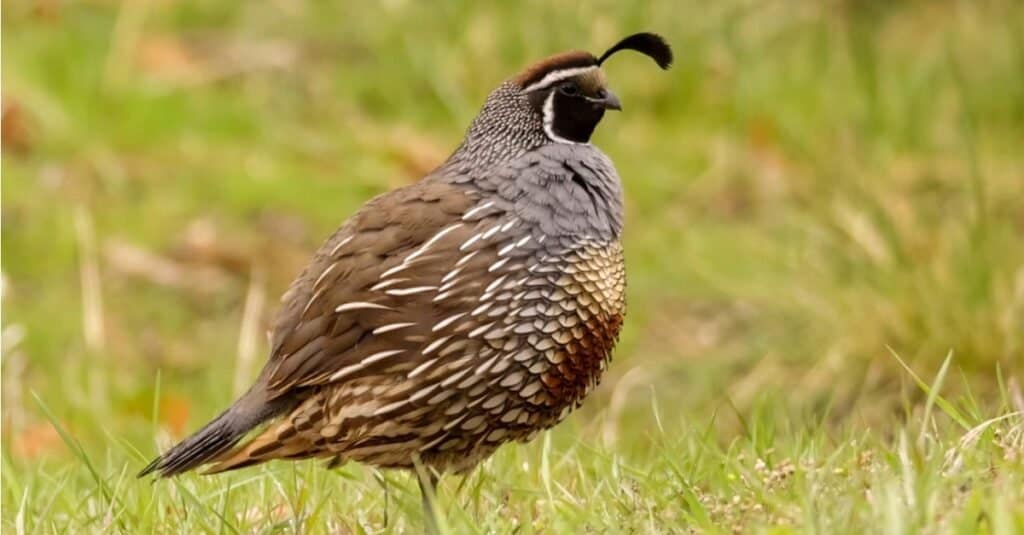5 Little-Known Facts About Quails
When it comes to the diverse bird species across the world, one particular type that doesn’t receive enough attention is the quail. These tiny birds pack a punch in terms of their unique characteristics and fascinating life cycles. If you’ve ever been curious about birds or love exploring new facets of nature, these five intriguing facts about quails are sure to pique your interest.

Content
1. Quails Are Omnivores
Despite their small size, quails are true omnivores. Their diet consists of seeds, insects, and even small reptiles or mammals when they get the chance. This makes them incredibly adaptable to varying habitats, as they can source their nutrition from a variety of foods available in their environment. This broad diet is one of the key factors contributing to their survival in different climates.
2. Quails Are Both Wild and Domesticated
Quails exist in both wild and domesticated forms. The wild ones are often found in woodlands, grasslands, and city parks. Meanwhile, many people have taken up the hobby of raising quail domestically for various purposes, including meat, eggs, and even companionship. These versatile birds have managed to carve out a niche in both natural and human environments.
3. Quail Eggs Are Nutrient-Dense
Don’t let their small size fool you. Quail eggs are packed with nutrients such as Vitamin B12, iron, and folate, making them a wholesome food choice. They’re especially popular in many Eastern cuisines and are beginning to gain popularity in Western diets too.
4. Quails Are Great For Pest Control
Thanks to their diet, quails play a vital role in pest control. They consume a significant number of insects, which can prove beneficial in keeping your garden free of pests. This natural, eco-friendly pest control technique is a fascinating example of how birds like quails can contribute positively to our daily lives.
5. Quails Are Excellent Camouflagers
Lastly, quails are experts at camouflaging. Their plumage allows them to blend seamlessly with their environment, making it difficult for predators to spot them. This quality makes observing quails in their natural habitat a truly rewarding experience for bird enthusiasts.
Quails are a testament to the fact that even the smallest creatures can possess a remarkable set of qualities. Whether it’s their adaptability or their surprising nutritional profile, these birds continue to intrigue and surprise us.
Learning more about different bird species like quails can be an enriching experience. Speaking of learning, if you’re interested in expanding your skills and knowledge, this enlightening piece on how to create a user-friendly application without prior experience may appeal to you. And for those with a green thumb, you might find these 5 steps to cultivate protein-rich food in your backyard quite enlightening. Remember, knowledge is power, and there’s no end to learning!
Quails Have a Varied Vocal Range
Not only are quails incredibly versatile in terms of habitat and diet, but they also exhibit a wide range of vocal sounds. Quails have been known to use different sounds for various purposes like calling their mates, alerting about predators, or marking their territory. Their vocal range can be a delight to the ears of bird watchers, who often rely on these distinct sounds to identify the presence of quails in the vicinity.
Quails Can Lay a Large Number of Eggs
For their size, quails are surprisingly prolific when it comes to laying eggs. A single female quail can lay about one egg a day during the breeding season. These eggs, though small, are a delight for the eyes with their speckled, often colorful, shell. This prolific egg-laying ability is why quail farming can be a rewarding hobby for those interested in raising quail domestically.
Quails Can Fly but Prefer to Stay Grounded
Even though quails are capable of short, swift flights, they’re predominantly ground-dwelling birds. They have adapted well to life on the ground, with their diet and nesting habits attuned to this lifestyle. Quails build their nests on the ground, often hidden amongst grass or under small shrubs, keeping them safe from aerial predators. This unique trait sets them apart from many bird species that prefer to stay high up in the trees.

Donna is your friend in the know. Her blog is a treasure trove of insightful tidbits on a wide range of topics. From wellness to technology, she’s your source for staying informed and inspired.






